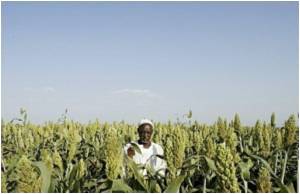A recent study suggests that the world's food demand is expected to double by 2050.

The study conducted by the Minnesota's College of Biological Sciences stressed the use of high-yielding technologies and efficient use of nitrogen fertilizers to prevent a major increase in carbon dioxide and nitrogen in the environment due to increased food production, and thus avert species extinction.
The study warned that if poor nations continue their current practices, they would lead to deforestation of a land area larger than the United States by 2050.
The research showed that adopting nitrogen-efficient "intensive" farming can meet future global food demand and had lesser adverse environmental impacts than the "extensive" farming.
"Strategically intensifying crop production in developing and least-developed nations would reduce the overall environmental harm caused by food production, as well as provide a more equitable food supply across the globe," College of Food, Agricultural and Natural Resource Sciences' Assistant Professor Jason Hill said.
The findings comes after the United Nations' agency, Food and Agriculture Organization (FAO) projected a 70 percent increase in demand.
Advertisement
The research is published online in the November 21 issue of the journal, Proceedings of the National Academy of Sciences.















